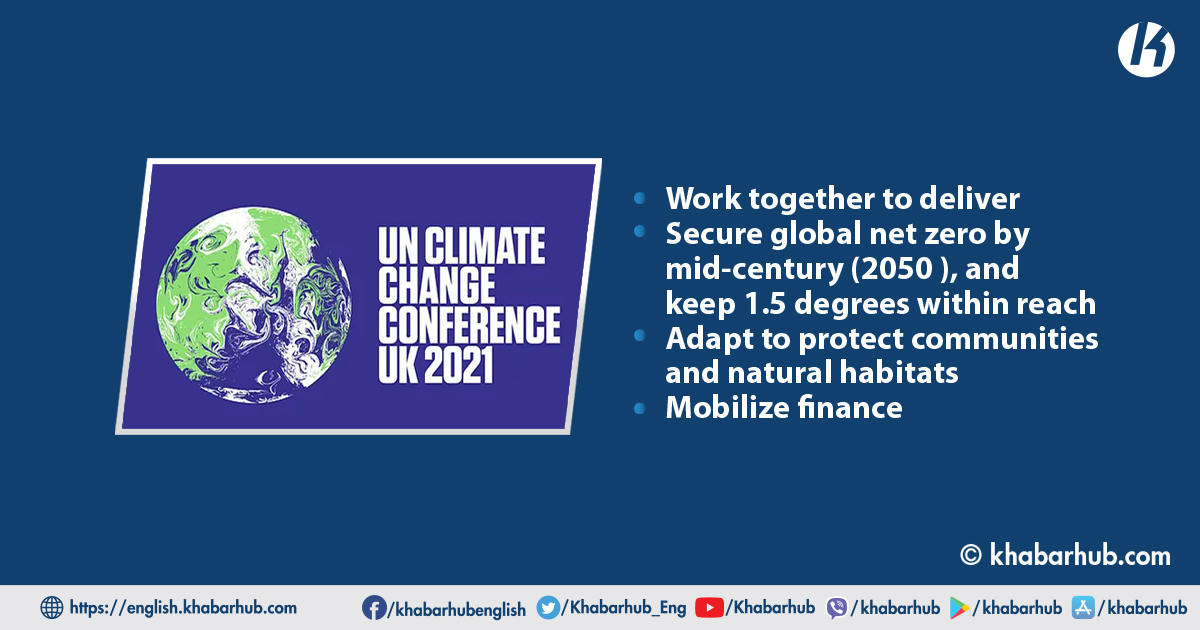At the United Nations climate change summit COP26 at Glasgow, the Presidents of the United States and China, the world’s two largest emitters of greenhouse gases, had remarkably different levels of exposure, but an identical message on one point: the need for action. Both countries do not appear to have made significant commitments at this conference.
In a written message to the Cop26 climate summit, China’s President, Xi Jinping, called on developed countries to “give support to help developing countries do better” in dealing with the climate catastrophe but made no new significant pledges.
China announced to the United Nations last week that it would reach a peak in emissions before 2030 and decrease them to net-zero by 2060, according to updated pledges.
To meet its targets, it has committed to increase overall wind and solar power output capacity to 1,200 gigawatts by 2030.
Climate experts, on the other hand, were hoping for additional pledges to curb energy use and a faster start to cutting coal use, which is currently planned to begin in 2026, putting greater pressure on China from other world leaders to make more promises.
More justifications and commitments will be seen in the next days of the summit. Until then, let us hope that COP26 serves as a major milestone for our environment and a symbol of light for our planet’s bright future.
According to Reuters, the latest deal could signify that the world’s largest CO2 emitter “has already concluded that after three major pledges since last year, it has no more concessions to offer at the UN Cop26 climate summit in Scotland.”
President of the United States of America, Joe Biden, emphasized in his speech that he has renewed America’s commitment to combating climate change following his predecessor Donald Trump’s rejection of the Paris Agreement. Climate activists, on the other hand, claim he offered little in the way of fresh US initiatives.
“I took action on my first day in office,” Biden added, “returning the United States to the Paris Agreement.” “Not only will we demonstrate that the United States is back at the table, but we’ll also hopefully lead by example.”
Developed countries have failed to keep their commitment to provide $100 billion per year to developing countries to assist them in making the transition to a low-carbon economy. This pledge was a cornerstone of Paris’ 2015 promises.
Unfortunately, while the majority of developed and developing economies signed the commitment, major emitters such as China, India, Russia, Australia, Turkey, and South Africa did not. China, Russia, and India are the greatest emitters among these countries, and their refusal to sign the agreement shows different views on some issues.
Many leaders mentioned this issue in their speeches, and Biden stated that he is working to quadruple financial aid to developing countries by 2024. “It is vital to help developing countries, and we will try to do our part in aiding the rest of the world in taking action,” he said.
Apart from that, the United States has made certain significant commitments, one of which is to reduce world methane emissions by 30%.
President Biden and the European Union jointly unveiled this plan with the goal of controlling methane as a short-term solution to the climate crisis. It’s worth noting that methane pollution causes asthma and other breathing problems, as well as lowering crop yields, resulting in poverty and hunger.
Biden proposed additional regulatory measures to reduce global methane emissions by 30% by the end of the decade, compared to 2020 levels. This commitment was made by 104 countries, including Brazil, which was led by the United States.
Unfortunately, while the majority of developed and developing economies signed the commitment, major emitters such as China, India, Russia, Australia, Turkey, and South Africa did not. China, Russia, and India are the greatest emitters among these countries, and their refusal to sign the agreement shows different views on some issues.
More justifications and commitments will be seen in the next days of the summit. Until then, let us hope that COP26 serves as a major milestone for our environment and a symbol of light for our planet’s bright future.









Comment